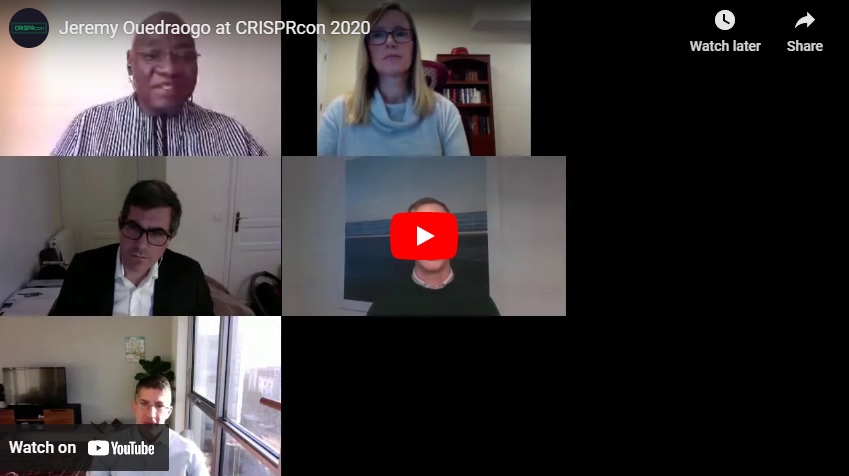CRISPRcon 2020 Revisited: The Role of Funders and Philanthropists in Setting the Gene Editing Agenda
Investment in gene editing technologies plays a significant role in the technology’s evolution and its application to issues in health, agriculture, conservation and more. The final panel discussion of CRISPRcon 2020, conducted Oct. 29, focused on investment by exploring the current funding pathways and priorities for applications of gene editing, including who is creating them and what values are being used to evaluate their application and impact.
“Funders and investors have a really big influence on where technologies go. This is just a fact. One can regulate all you want and exert governance in various kinds of ways but if you have a big push through funding—from research and development to fusion—that’s just going to have a big impact on where technologies go and where gene editing will go,” said David Winickoff, head of the Working Party on Bio-, Nano-, and Converging Technology, who moderated the session.
“Now, the role of gene editing. If you look within on-farm investments and what the researchers are telling us, one of the key areas is, for instance, climate resilient crops. Gene editing has a powerful and critical role to play in that but it’s also critically important that on-farm investments such as extension are prioritized and the bigger system in terms of just being able to not only have access to improved seeds, for instance, but access to extension services, agronomic practices, access to functioning markets post-harvest handling, it is a big picture. So, gene editing is absolutely one of those things that has enormous potential…but it’s one tool of many,” said Browning.
“Genome editing and other relevant technologies are coming into compliment. Conventional breeding has done a lot on the continent but we do have areas where we need to up the game and consider different approaches where the conventional approaches have failed and that’s why the African Union considered that emerging technologies coming in should be harnessed by the local scientists. And we are very happy to see that there is a shift of the paradigm in the African countries today,” said Ouedraogo.
“Gene editing technology is really a part of the solution space for these kinds of typical public health challenges, but really understanding how these investments fit together, more modelling and more analysis would be needed to identify the kind of optimal mix,” said Cheever.
“I think that responsible venture capitalists will tell you, or at least I hope, that responsible VCs will recognize their own shortcomings. And also try not to monopolize the discourse and say ‘we’re the solution to all innovation.’ I just don’t think that’s the case. That’s why we have the Gates Foundations and all these other players,” said Seyedin-Noor.


 Steven Williams is the Chief Executive Officer of PepsiCo North America, overseeing a more than $48 billion business that spans PepsiCo’s Foods and Beverage operating units. His leadership encompasses more than 125,000 associates and over 900 locations across the U.S. and Canada. Steven joined PepsiCo in 2001 as part of PepsiCo’s acquisition of the Quaker Oats Company, which he joined in 1997, and has held leadership positions of increased responsibility since.
Steven Williams is the Chief Executive Officer of PepsiCo North America, overseeing a more than $48 billion business that spans PepsiCo’s Foods and Beverage operating units. His leadership encompasses more than 125,000 associates and over 900 locations across the U.S. and Canada. Steven joined PepsiCo in 2001 as part of PepsiCo’s acquisition of the Quaker Oats Company, which he joined in 1997, and has held leadership positions of increased responsibility since.


